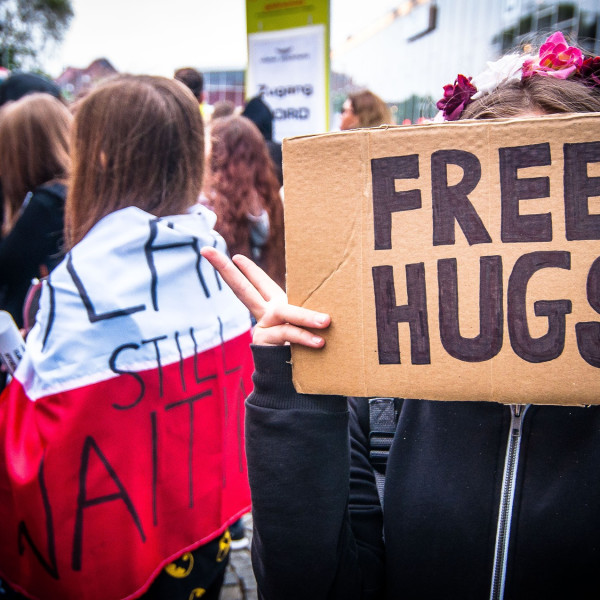Crisis

Today marks a year since the Orlando nightclub shooting. On June 12, 2016, a single gunman walked into a Florida nightclub and killed 49 people, wounding 58 others. A few days later, I wrote down some thoughts about what was happening. This is the first time I’ve shared them.
I think we stand on the cusp of a crisis in the life of humanity.
We see the leading indicators of it all around us. The intensifying clash between the West and the East, between Christians and Muslims, between the religious and the secular. We see the internal collapse of traditional Christianity among developed nations, coupled with the rise of radical Christianity in developing nations.
Much of this tension is driven by the fact that we now live in a global civilization. What happens on one side of the world immediately impacts the other side of the world. We are so tightly networked, that one person can affect almost everybody else.
This is both good and bad. Our global systems of communication can trigger the fall of dictators, or catalyze the rise of terrorist organizations. It is possible for vast efforts of cooperation to arise overnight, or for ISIS to recruit middle class American high-schoolers via social media.
This past Sunday, a gunman massacred 49 people in a gay nightclub in Orlando, triggering a predictable, but chaotic national argument about gun control, Islam, and LGBTQ issues.
Unfortunately, most of that argument misses the point. This kind of violence is in part triggered by an increasingly connected and empowered world. The background tensions that caused this are going to continue to rise—and soon, assault rifles are going to pale in comparison to the destructive capabilities available to anyone, anywhere.
This means that we are now in an arms-race between compassion and fear.
Many people, on seeing the dangers being unleashed in the world, are doubling down on cries for protection, defense, security. This is the kind of environment in which fascism, based on the absolute priority of strength, begins to seem appealing.
That way leads to utter destruction.
If our response to rising tension is to become more aggressive, then our enemies will do the same. In fact, it is exactly this that is fueling the rise of ISIS. The more conflict there is between Muslim and non-Muslim cultures, the more appealing ISIS becomes to moderate individuals. Just as, conversely, the more conflict there is between Muslim and non-Muslim cultures, the more Americans cry out for blood.
The temptation here is to try to establish who deserves more of the blame. This is utter foolishness—a complete waste of time. While we are arguing about who deserves the blame, the world around us will descend into chaos.
The solution is as obvious as it is counter-intuitive. We must fight the enemy by removing his strength. We must perform a Judo move, using our enemy’s force against him.
In the face of aggression, we must de-escalate. We must remove the impetus which fuels the enemy’s power. When caught between two societies of extreme aggression, humans will choose the side that looks most like them. But when caught between a society of acceptance and compassion on one side, and a society of violence and strength on the other—humans will choose the side of compassion.
Incidentally, this is what Jesus means when he says, “Do not be overcome by evil, but overcome evil with good”. Rather than becoming more and more like the enemy, as you rise to meet his violence, become more and more human in the face of that violence.
It is the most successful military strategy of all time. It led a small group of marginal Jews to defeat an empire. If it hadn’t worked, there wouldn’t be 2.5 billion Christians in the world today—there would be no Christians.
Like I said, these tensions aren’t going to stop. And if all we do is respond to fear with more strength and aggression, then sooner or later a terrorist is going to get their hands on a weapon that will end life as we know it.
The alternative is that we must exponentially increase our compassion. We must respond to fear with understanding. We must respond to violence with humanity. We must build a civilization more open, more resilient, more diverse, and more free than ever before.
Christians must welcome and embrace those with whom they intensely disagree—whether Muslims, LGBTQ, the non-religious, or whatever else someone may be. That is, after all, what living out Christian values is all about.
The West must defend its values by actually embracing them—by creating a society of education and dialogue and diversity.
The Left and the Right must stop vilifying and demonizing each other, and must abandon the childish arguments that rise in the aftermath of crises and tragedies. They must either engage in civil dialogue, or disband in favor of some new social organization.
What the world needs is faith, hope, and love. Hope that a better future is possible, the faith to pursue it, and the love that will make it happen.